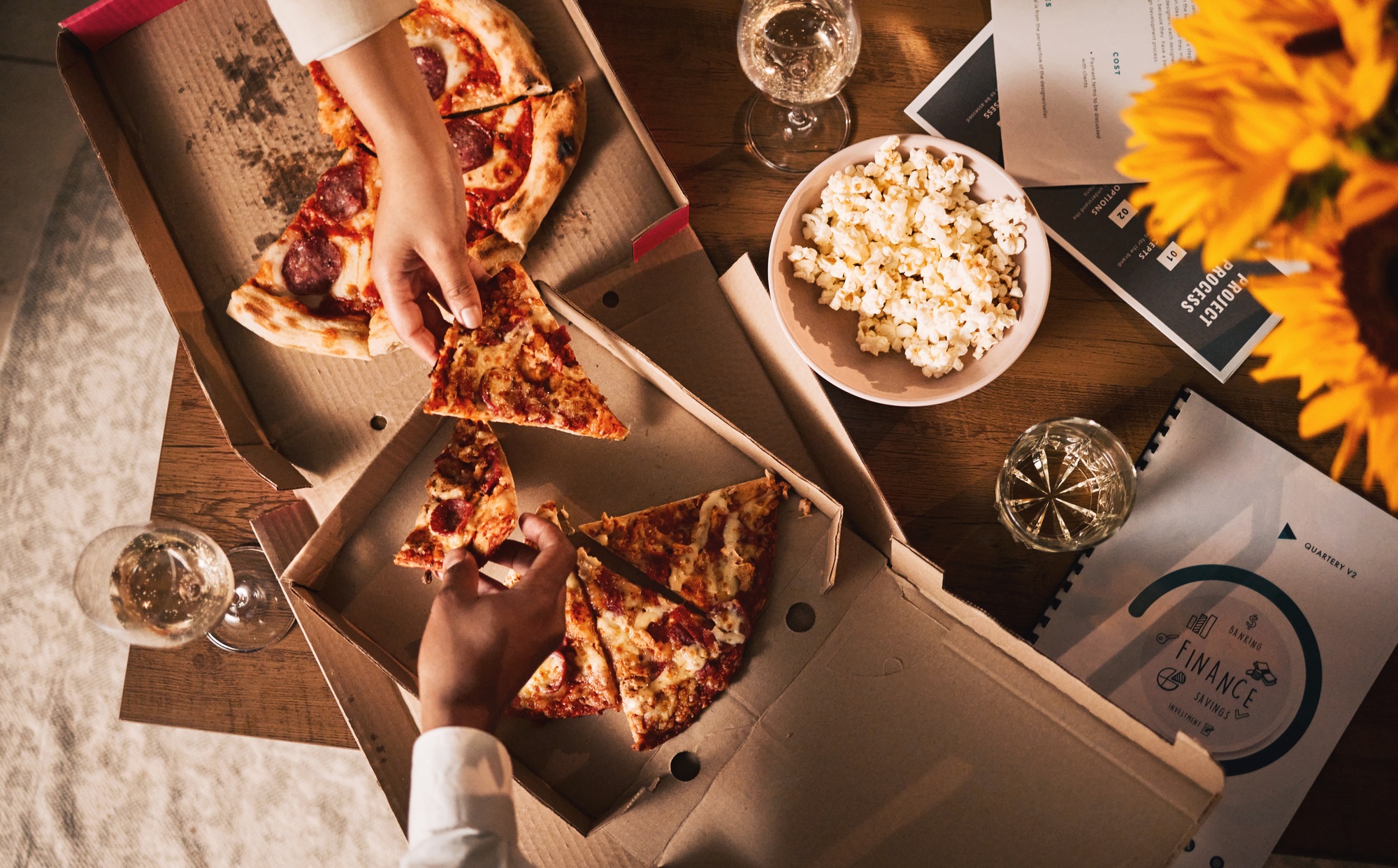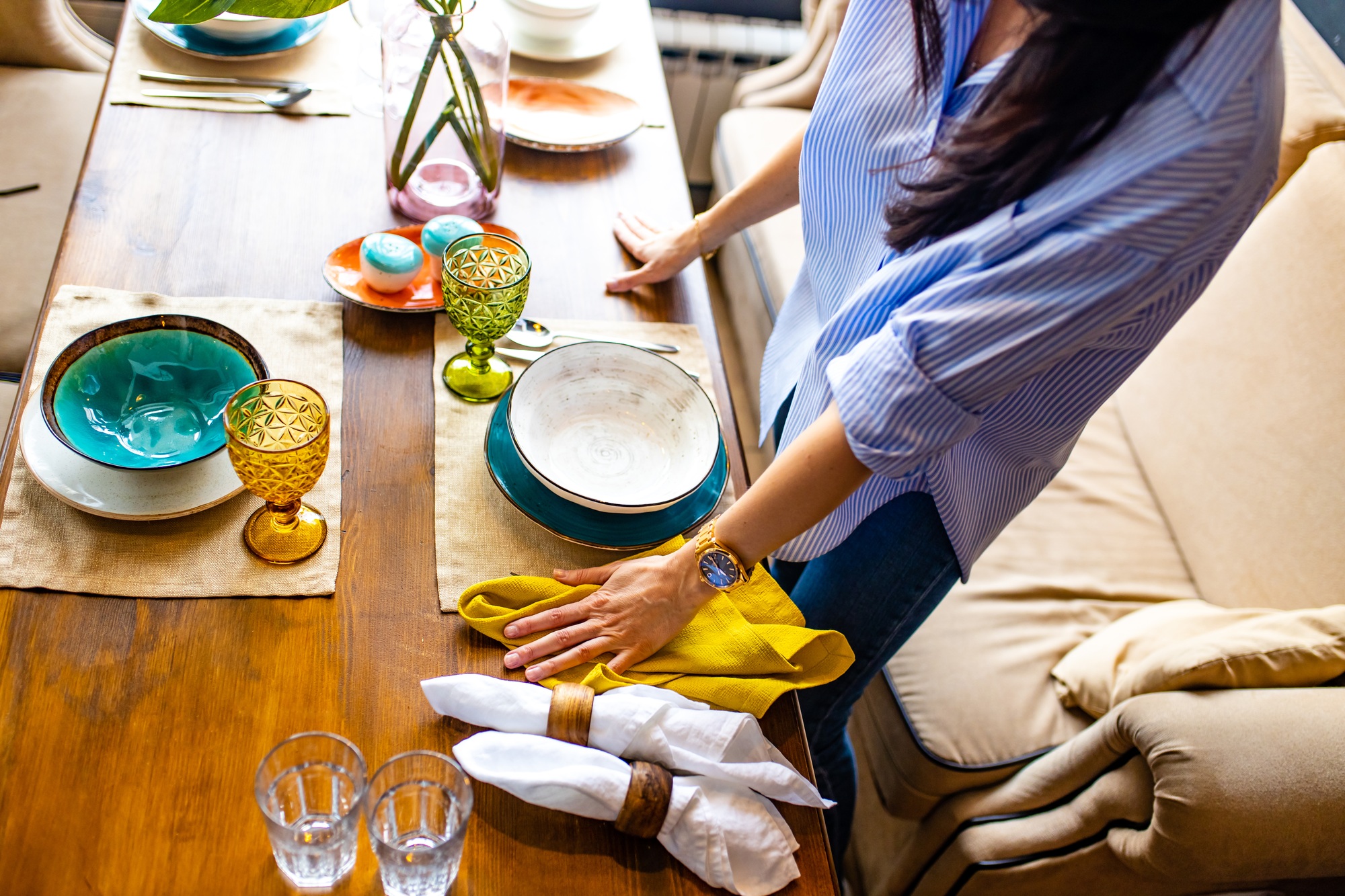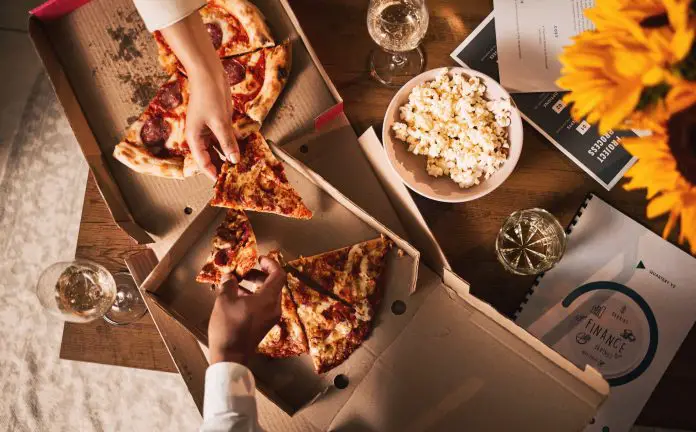Key Takeaways

- Mastering Etiquette: Understanding business dinner etiquette enhances your professionalism and can significantly influence networking success, crucial for building valuable connections.
- Cultural Awareness: Different cultures have unique dining customs; researching your guests’ backgrounds demonstrates respect and strengthens professional rapport.
- Pre-Dinner Preparation: Selecting the right venue and sending personalized invitations ensures a positive experience, reflecting consideration for your guests’ preferences.
- Dining Etiquette Basics: Familiarize yourself with table settings and proper utensil usage to convey confidence and professionalism during the meal.
- Conversation Skills: Engaging in thoughtful small talk while avoiding controversial topics fosters a comfortable atmosphere and strengthens relationships.
- Post-Dinner Follow-Up: Sending personalized thank you notes and leveraging networking opportunities reinforces connections made during the dinner, supporting your business growth.
Navigating the world of business dinners can be tricky, but mastering the etiquette can set you apart in a competitive environment. Whether you’re sealing a deal or networking with potential partners, your behavior at the dinner table speaks volumes about your professionalism and respect for others.
From choosing the right attire to understanding the nuances of conversation, every detail matters. You want to leave a lasting impression, and knowing the ins and outs of business dinner etiquette can help you achieve that. So let’s dive into the essential tips that will elevate your dining experience and enhance your professional relationships.
Understanding Business Dinner Etiquette

Business dinner etiquette reflects your professionalism and can significantly influence your networking success. Mastering these social nuances enhances your credibility, especially crucial for small business owners looking to make valuable connections.
Importance of Etiquette in Business Dinners
Etiquette plays a pivotal role in business dinners. It demonstrates your respect for clients and colleagues, fostering positive relationships. A well-executed dinner can lead to successful negotiations and future collaborations. Details such as table manners, conversation topics, and punctuality matter. First impressions often set the tone for your business interactions, so avoid common pitfalls by being aware of your behavior. Adhering to etiquette can distinguish you from competitors and position you as a reliable partner.
Cultural Variations in Dinner Etiquette
Cultural awareness is crucial when attending business dinners with diverse clients. Different cultures observe distinct dining customs. For example, some cultures prioritize formal dining settings, while others embrace casual environments. In certain regions, shared dishes encourage interaction, while in others, individual plates maintain personal space. Adapt to these differences by researching your guests’ backgrounds. This adaptability demonstrates respect for their customs and strengthens your professional rapport, essential for running a small business successfully.
Pre-Dinner Preparation

Pre-dinner preparation sets the tone for a successful business dinner. Attention to detail ensures a positive experience for both hosts and guests.
Choosing the Right Venue
You must select a venue that aligns with your business image and the preferences of your guests. This includes considering the location, ambiance, and menu options. Research restaurants that cater to a variety of dietary restrictions and preferences. If possible, communicate with your guests beforehand to understand their needs. Making reservations well in advance helps secure a suitable table and prepares you for any potential scheduling challenges that may arise.
Sending Invitations
You should send invitations promptly, whether via email or calendar invites. Include essential details such as date, time, venue, and any special instructions regarding attire. Clear communication fosters professionalism and shows respect for your guests’ time. Ensure guests feel valued by personalizing the invitations, which reflects well on small business etiquette.
Dining Etiquette Basics

Understanding dining etiquette is essential for making a lasting impression during business dinners. Mastery of these basics reflects your professionalism and respect, especially important for small business owners navigating client relationships.
Table Setting and Silverware Usage
Recognize the layout of the table before you start. Identify where each piece of silverware belongs; use utensils from the outside in as courses are served. Understand that forks typically lie on the left, while knives and spoons belong on the right. Notice the placement of glasses; use the one closest to your right for drinking. Stay aware of your setting to convey confidence and sophistication during the dinner.
Ordering Food and Drinks
Order food and drinks wisely. Prioritize dishes that are easy to manage. Avoid messy foods that could disrupt conversation or lead to awkward moments. When it’s time to order, follow the lead of the host or higher-ranking guests; this shows respect for their role. When choosing beverages, a simple water or soft drink often works well, but remain aware of the company culture regarding alcohol. Choose your options thoughtfully to demonstrate your professionalism, especially when representing your small business.
Conversation Tips

Effective conversation plays a critical role in creating a positive atmosphere during business dinners. For small business owners, mastering these techniques enhances your professional image and fosters stronger relationships with clients and colleagues.
Engaging in Small Talk
Engaging in small talk helps establish rapport and makes everyone feel comfortable. Use open-ended questions to draw out opinions and experiences related to work, industry trends, or recent achievements. Consider the following topics:
- Recent projects you’ve completed.
- Trends impacting your industry.
- Upcoming events or conferences relevant to your field.
These subjects not only keep the conversation flowing but also reflect your knowledge and passion for running a small business.
Avoiding Controversial Topics
Avoiding controversial topics is essential for maintaining a professional tone. Steer clear of discussions involving politics, religion, or personal finances. Instead, focus on neutral subjects that foster connection. Keeping conversations light and engaging creates a more enjoyable dining experience, enabling you to strengthen your network without the risk of discomfort or disagreement.
Post-Dinner Follow-Up

Post-dinner follow-up helps reinforce connections made during the dinner. Effective follow-up strategies support the goals of running a small business and maintaining professional relationships.
Thank You Notes
Send personalized thank you notes promptly after the dinner. Express appreciation for the guest’s time, insights, and contributions to the conversation. Mention specific topics discussed to create a more meaningful connection. Utilize handwritten notes for a personal touch, which reflects professionalism and attention to detail that small business owners should prioritize.
Networking Opportunities
Utilize the dinner as an opportunity to expand your network. Follow up with guests by connecting on professional social media platforms. Engage with their content and share insights relevant to your industry. Offer to continue discussions or collaborate on future projects. This proactive approach positions your small business favorably in the minds of potential clients and partners, enhancing the chances of future collaboration.
Conclusion
Mastering business dinner etiquette is essential for making a positive impression and fostering strong professional relationships. By paying attention to details like venue selection and conversation topics, you can create an inviting atmosphere that encourages collaboration.
Remember that your behavior at the table reflects your professionalism and respect for others. Cultural awareness also plays a crucial role in building rapport with diverse clients.
Finally, don’t underestimate the power of a thoughtful follow-up. A simple thank you note can reinforce connections and set the stage for future opportunities. Embrace these etiquette tips to enhance your dining experiences and elevate your professional image.
Frequently Asked Questions
What is business dinner etiquette?
Business dinner etiquette refers to the social guidelines and behaviors expected during formal dining events, which can greatly impact professional relationships. Mastering it showcases professionalism, respect, and attention to detail, crucial for networking and sealing deals.
Why is mastering etiquette important for small business owners?
For small business owners, mastering etiquette helps create a favorable impression, promotes respect, and strengthens connections in competitive environments. It signals professionalism, crucial for building rapport and enhancing business opportunities with clients and partners.
How should I prepare for a business dinner?
To prepare for a business dinner, choose a venue that reflects your business image and take your guests’ preferences into account. Make reservations in advance, send personalized invitations promptly, and consider dietary restrictions to foster professionalism and enhance the dining experience.
What are the basics of dining etiquette?
The basics of dining etiquette include understanding table settings, using utensils correctly (from outside in), and ordering manageable dishes. Following the lead of the host or higher-ranking guests also reflects professionalism and respect during business dinners.
How can I improve conversation during business dinners?
To improve conversation during business dinners, engage in light small talk on neutral topics like industry trends or recent projects. Avoid controversial subjects and aim to create rapport through enjoyable discussions, which enhance networking and strengthen professional relationships.
Why is post-dinner follow-up important?
Post-dinner follow-up is vital to reinforce connections made during the dinner. Sending personalized thank-you notes promptly demonstrates appreciation and respect, while mentioning specific topics discussed helps maintain a meaningful connection and sets the stage for future collaboration.
Image Via Envato



